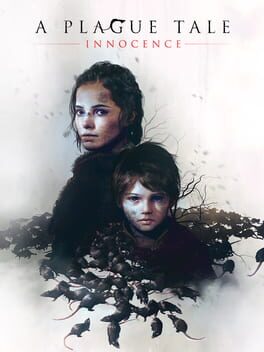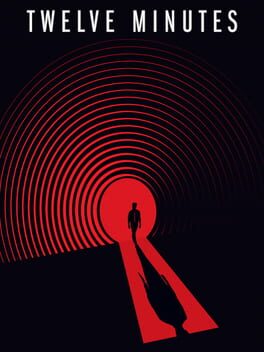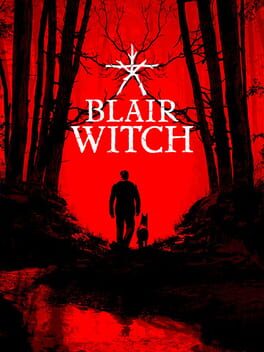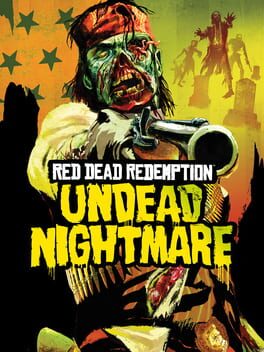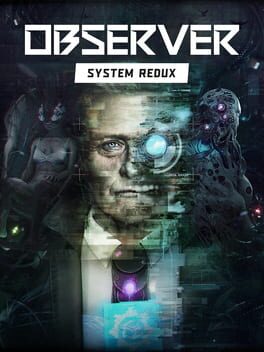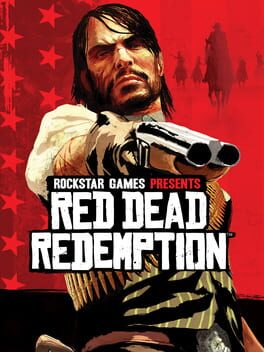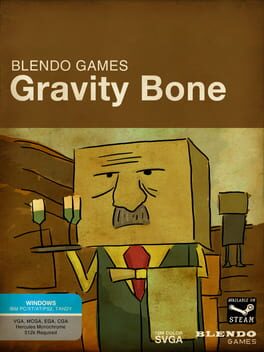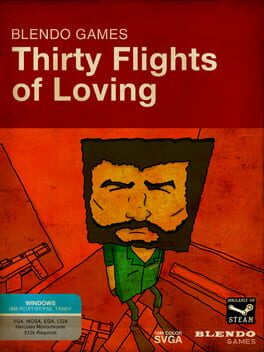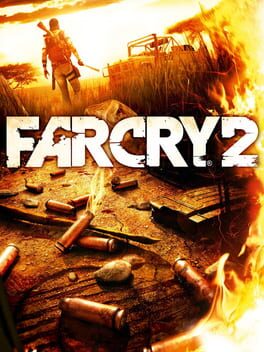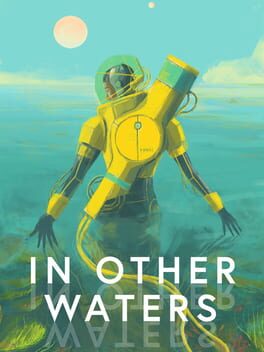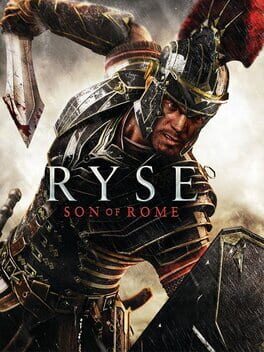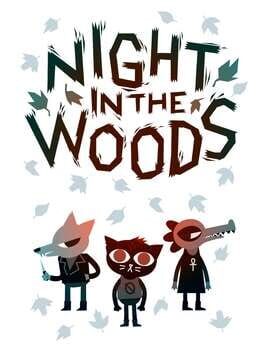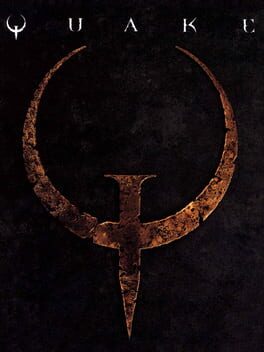zachmaycry
I love it formally and mechanically. It's like Dear Esther meets God of War, which is pretty cool. It's all light combat, environmental puzzles and straight up story (almost entirely voiceover). In a lot of ways it's my ideal game set up.
It's weird though because what it reminds me most of is the movie, The Revenant, which I hated. A lot of long takes. A lot of staring down the lens. A lot of mud and blood and shit. A lot of "harrowing anguish". And I don't know what it means for me that when a game does something a movie I hated did, I actually dig it (The Last of Us 1 and 2 kind of similiar). My only guess is because games are steeped in certain (very teen-friendly) aesthetics and tropes that when something kind of breaks through those barriers I get carried away.
Like this is sort of the inverse of God of War. God of War presents on the face a very literal fantasy world, where mythology is vibrant and alive. But all the gore and violence is still cartoonish. None of the characters feel like real people. Even in 2018's God of War, it's basically just an R-rated MCU movie. And the stakes... aren't there because it feels so fake.
Whereas Hellblade's reality is our reality. It's all mud and sticks and fire and blood and burnt, gored bodies strewn up all over the world like Christmas decorations. It's more natural and rustic. And the Norse mythology that runs through the game is filtered through dreamscapes/psychosis; it's a formalist unreality that God of War only kind of gets into at the end of III. And Senua is not Kratos. She's vulnerable and alone, and (initially (sigh at an upcoming sequel)) not a console mascot whose fate is kind of predictable. She's more human and relatable.
Where this game falls down for me is... well I don't know if it falls down but what I don't like about it is how it uses mental illness/psychosis as a device to obfuscate backstory. And it doesn't only use it for that. But I couldn't help but feel this game would be better if it were blunter. If Senua's backstory wasn't a puzzle to be revealed over time. If Senua's mental health didn't also skirt into "is she crazy or a genuine soothsayer". Part of this game feels designed to make you google "what was REALLY happening" afterwards.
I don't know, despite -- or maybe because of -- the immediate and showy mental health advisor credit that opens the game, it seems like "mental health" is something they stuck on as a gimmick, like someone's pitch was "what if you play as a crazy person" and it sprang from there. And I don't know if that's the case a all but it's the impression they leave by opening the game that way. And I don't know how much research they did and how much care they put in, but the portrayal was so extra and overwrought and lacking in subtlety it doesn't wind up feeling all that delicate. That credits winds up feeling like insurance.
Despite all that I liked how hopeful the game kind of felt by the end. How much the game recognised your mental health is something that isn't conquered but how equilibrium is learning to live through it and with it.
Part of me wishes this could have just been as scaled down narratively/thematically as it was mechanically. Been more Valhalla Rising, less The Revenant.
It's weird though because what it reminds me most of is the movie, The Revenant, which I hated. A lot of long takes. A lot of staring down the lens. A lot of mud and blood and shit. A lot of "harrowing anguish". And I don't know what it means for me that when a game does something a movie I hated did, I actually dig it (The Last of Us 1 and 2 kind of similiar). My only guess is because games are steeped in certain (very teen-friendly) aesthetics and tropes that when something kind of breaks through those barriers I get carried away.
Like this is sort of the inverse of God of War. God of War presents on the face a very literal fantasy world, where mythology is vibrant and alive. But all the gore and violence is still cartoonish. None of the characters feel like real people. Even in 2018's God of War, it's basically just an R-rated MCU movie. And the stakes... aren't there because it feels so fake.
Whereas Hellblade's reality is our reality. It's all mud and sticks and fire and blood and burnt, gored bodies strewn up all over the world like Christmas decorations. It's more natural and rustic. And the Norse mythology that runs through the game is filtered through dreamscapes/psychosis; it's a formalist unreality that God of War only kind of gets into at the end of III. And Senua is not Kratos. She's vulnerable and alone, and (initially (sigh at an upcoming sequel)) not a console mascot whose fate is kind of predictable. She's more human and relatable.
Where this game falls down for me is... well I don't know if it falls down but what I don't like about it is how it uses mental illness/psychosis as a device to obfuscate backstory. And it doesn't only use it for that. But I couldn't help but feel this game would be better if it were blunter. If Senua's backstory wasn't a puzzle to be revealed over time. If Senua's mental health didn't also skirt into "is she crazy or a genuine soothsayer". Part of this game feels designed to make you google "what was REALLY happening" afterwards.
I don't know, despite -- or maybe because of -- the immediate and showy mental health advisor credit that opens the game, it seems like "mental health" is something they stuck on as a gimmick, like someone's pitch was "what if you play as a crazy person" and it sprang from there. And I don't know if that's the case a all but it's the impression they leave by opening the game that way. And I don't know how much research they did and how much care they put in, but the portrayal was so extra and overwrought and lacking in subtlety it doesn't wind up feeling all that delicate. That credits winds up feeling like insurance.
Despite all that I liked how hopeful the game kind of felt by the end. How much the game recognised your mental health is something that isn't conquered but how equilibrium is learning to live through it and with it.
Part of me wishes this could have just been as scaled down narratively/thematically as it was mechanically. Been more Valhalla Rising, less The Revenant.
i often wonder where the AA/AAA games about motherhood are. and while technically this is a game about siblings, the way both Amicia's brother, Hugo, and also occasionally young budding alchemist, Lucas, huddle around her during certain sections where she has to illuminate a path through a plague of rats with a torch felt really maternal to me. it's also really rare for a game with a female protagonist to be so devoid of paternal/male figures too. i think that's what makes playing feel so fresh to me (even if it's not the freshest concept outside of games).
i really fell for this game's emotional tricks. the way it throws you into a bleak, terrifying world and then - like a flower blooming in the mud, blood and shit of a corpse-ridden battlefield - gives way to these really relieving moments of young teen characters bonding as they clutch onto each other (figuratively and literally) through the hell of it all. i think the game really nails those little quiet moments between stealthing passed inquisition guards and piles of swarming carnivorous rats, there's often a real personality to them (sometimes they offer levity, sometimes, as wit Melie, you can feel a genuine tension that exists beyond merely being your new BFF).
odd note: but i appreciate that i didn't have to collect any journals (i don't know why that stood out to me). but the "environment storytelling" is mostly the actual environment, a few npcs maybe, but there's like no like walls of text or little notes left lying around. made the game feel more in the moment, more urgent and the world by extension less artificially constructed (even if by the end what it's doing with the waves of rats is some insane out of this world shit... game kind of goes too far there i think but oh well).
also appreciate that murder in this game - while painted as a necessary evil via lines like "there was no other way" - isn't completely written off as just another wanton act of regular video game violence. the first two men you kill feels genuinely harrowing. likewise there are moments where you have a "choice" to kill/let someone die and while there's no morality system characters may remark upon it and in those moments you can feel Amicia grappling with her actions. it made me wish the game put more thought into non-violent combat and scaled back the amount of encounters where you 100% have to brain a guard with a rock/sic rats on them (and by the end the game feels like it just said fuck it, kill everyone). a missed opportunity but possibly because of how considered it felt at other times.
i really fell for this game's emotional tricks. the way it throws you into a bleak, terrifying world and then - like a flower blooming in the mud, blood and shit of a corpse-ridden battlefield - gives way to these really relieving moments of young teen characters bonding as they clutch onto each other (figuratively and literally) through the hell of it all. i think the game really nails those little quiet moments between stealthing passed inquisition guards and piles of swarming carnivorous rats, there's often a real personality to them (sometimes they offer levity, sometimes, as wit Melie, you can feel a genuine tension that exists beyond merely being your new BFF).
odd note: but i appreciate that i didn't have to collect any journals (i don't know why that stood out to me). but the "environment storytelling" is mostly the actual environment, a few npcs maybe, but there's like no like walls of text or little notes left lying around. made the game feel more in the moment, more urgent and the world by extension less artificially constructed (even if by the end what it's doing with the waves of rats is some insane out of this world shit... game kind of goes too far there i think but oh well).
also appreciate that murder in this game - while painted as a necessary evil via lines like "there was no other way" - isn't completely written off as just another wanton act of regular video game violence. the first two men you kill feels genuinely harrowing. likewise there are moments where you have a "choice" to kill/let someone die and while there's no morality system characters may remark upon it and in those moments you can feel Amicia grappling with her actions. it made me wish the game put more thought into non-violent combat and scaled back the amount of encounters where you 100% have to brain a guard with a rock/sic rats on them (and by the end the game feels like it just said fuck it, kill everyone). a missed opportunity but possibly because of how considered it felt at other times.
2021
conceptually, i can see this being a hit at parties, where most people are already buzzed for the evening, as it's something one of the gamer friends can suggest that won't be too burdensome. maybe take 20 minutes to try and puzzle through it before getting distracted by trish taking her top off or joey falling over trying to wear a lampshade for a hat. it's the 2021 equivalent of, idk...twister.
but man, the story underneath it all: LMAOOOO.
it has one nice moment where you sit down for desert and dance in the living room. but once more, video games prove themselves incapable of approaching romance or domestically earnestly, and what unfolds is an unintentionally hilarious melodrama on par with the room.
but man, the story underneath it all: LMAOOOO.
it has one nice moment where you sit down for desert and dance in the living room. but once more, video games prove themselves incapable of approaching romance or domestically earnestly, and what unfolds is an unintentionally hilarious melodrama on par with the room.
2019
trauma as primary subtext, or just 'text', needs to go away. shoo. vanish. or at least the horror community need to find another topic from the giant fishbowl of pain they mine for stories, because then you wind up with this: a game about a man with like, let's see... one-two-three-four-potentially five or six instigating traumas. two of them are so identical it genuinely feels like a mistake that they both made it into the game. criticising this game for doing a poor-to-damaging job of representing mental illness and trauma victims is giving it too much credit because it feels like a game whose writer fell asleep at the wheel and crashed through a convenience store. ignorance might not seem like a good defence but the intent seems harmless, driven by cliches and broad trends/modern conventions rather than intentionally calculating and cold.
on the flipside, i can't help but just vibe with the kind of horror design bloober are aiming to make. this feels like a better version of what resident evil 7 thought it was. the ending is maybe too painfully long and the game's moral and stealth systems seem broken and boring respectively. however, i love taking solitary walks in a big, beautiful scary forest. the monsters in the game are barely visible and present but terrifying as hell, genuinely feels like the woods themselves are attacking you. there's virtually no combat aside from a torch which i like. bloober's penchant for using video games to push physical spaces to insane proportions is on show once again too. a forest can become a warzone in a blink of an eye. a sudden burst of light can turn night into day. the blair witch house can be an insane horror maze. i love this shit, i can't deny it.
and the support the dog the game gives you. it's such a great catharsis. the dog affords the player almost the same level of comfort he offers the main character. you never feel alone or abandoned with him by your side. bullet is his name and he's one of the all-time video game pets.
i don't think bloober are capable of crafting a rich, compelling narrative. if anything, they're doing the opposite. but i do think they have a good head for horror design philosophy and can are making some of the richest visual horror games around. they're like the zack snyder/michael bay of horror games: dumb as a bag of bricks, but man they know to craft an image or two.
on the flipside, i can't help but just vibe with the kind of horror design bloober are aiming to make. this feels like a better version of what resident evil 7 thought it was. the ending is maybe too painfully long and the game's moral and stealth systems seem broken and boring respectively. however, i love taking solitary walks in a big, beautiful scary forest. the monsters in the game are barely visible and present but terrifying as hell, genuinely feels like the woods themselves are attacking you. there's virtually no combat aside from a torch which i like. bloober's penchant for using video games to push physical spaces to insane proportions is on show once again too. a forest can become a warzone in a blink of an eye. a sudden burst of light can turn night into day. the blair witch house can be an insane horror maze. i love this shit, i can't deny it.
and the support the dog the game gives you. it's such a great catharsis. the dog affords the player almost the same level of comfort he offers the main character. you never feel alone or abandoned with him by your side. bullet is his name and he's one of the all-time video game pets.
i don't think bloober are capable of crafting a rich, compelling narrative. if anything, they're doing the opposite. but i do think they have a good head for horror design philosophy and can are making some of the richest visual horror games around. they're like the zack snyder/michael bay of horror games: dumb as a bag of bricks, but man they know to craft an image or two.
Much of Red Dead Redemption's most sincere moments exist in this Treehouse of Horror esque DLC.
Abigail bantering with her son, Jack, asking that when he returns after University to have spare her - "an old crone" - some pity when he's kicking her off of him in the street.
The silent look John gives Bonnie - and her silent, mournful acceptance - over her father's zombification.
The little way the nuns laugh when John calls the Mother Superior "sister".
The conversation John has with the 15 year old girl Millicent after saving her from some zombies. She says the curse is her fault for kissing a boy she isn't betrothed to. John reassures her if their sins are the cause, he has more blame than her.
These don't sound like much on paper. Nor are they numerous. But in a game full cheeky zombie humour - it's the kind of zombie game where characters can play around and have fun with the slow, half-witted zombies - these really stand out to me. And they even stand out compared to the main game, which I don't think has enough of these moments.
The reveal for the zombie curse in this game too is quite nice. I thought the game was just reusing a certain NPC model and I thought nothing of it and then, lol, the ending kind of minorly blew my mind for a second. Nothing to write home about but I dug it.
As a side note: I bought this in 2013 and only played it now. That eight years is the longest I've gone from owning a game to starting one. I wish I wasn't so afraid of zombie games and played it sooner.
Abigail bantering with her son, Jack, asking that when he returns after University to have spare her - "an old crone" - some pity when he's kicking her off of him in the street.
The silent look John gives Bonnie - and her silent, mournful acceptance - over her father's zombification.
The little way the nuns laugh when John calls the Mother Superior "sister".
The conversation John has with the 15 year old girl Millicent after saving her from some zombies. She says the curse is her fault for kissing a boy she isn't betrothed to. John reassures her if their sins are the cause, he has more blame than her.
These don't sound like much on paper. Nor are they numerous. But in a game full cheeky zombie humour - it's the kind of zombie game where characters can play around and have fun with the slow, half-witted zombies - these really stand out to me. And they even stand out compared to the main game, which I don't think has enough of these moments.
The reveal for the zombie curse in this game too is quite nice. I thought the game was just reusing a certain NPC model and I thought nothing of it and then, lol, the ending kind of minorly blew my mind for a second. Nothing to write home about but I dug it.
As a side note: I bought this in 2013 and only played it now. That eight years is the longest I've gone from owning a game to starting one. I wish I wasn't so afraid of zombie games and played it sooner.
Narratively it feels like a bit of waste and like that meme of the picture of the horse that begins super detailed and evolves into a stick figure. The detective side of the game isn't very fleshed out. And then the ending throws all these big cyberpunk themes at you and gives you no real time to grapple with them. It's like someone tapped over last 90 minutes of Blade Runner to record the last 30 minutes of Ghost in the Shell.
I am not going to complain though. Visually striking and I dig that it's confident enough in itself to throw so much vivid imagery at you at every turn. Having just played Thirty Flights of Loving, this feels like the ideal AA or AAA version of that. Maybe it's ultimately too long to really hold up. But the ideal AA game, imo, should be this - a super polished and impressive looking 4-6 hour game full of sick images.
I am not going to complain though. Visually striking and I dig that it's confident enough in itself to throw so much vivid imagery at you at every turn. Having just played Thirty Flights of Loving, this feels like the ideal AA or AAA version of that. Maybe it's ultimately too long to really hold up. But the ideal AA game, imo, should be this - a super polished and impressive looking 4-6 hour game full of sick images.
2010
It's kind of the "Free Bird" of video games. It's thematically thin, but just fatalitic enough to feel poetic. It's a cornerstone of modern American AAA games the way Free Bird is a cornerstone of 70s rock. Both a very much for Your Dad. And its legacy is ultimately tied to its vastness.
Just as Free Bird goes on and on and crescendos with a long guitar solo, so does Red Dead Redemption go on and on and then crescendos spectacularly... although crescendo is the wrong word. This isn't a game that leads to a big, violent set piece, but rather leads a series of quiet domestic chores as you reacclimate to life around the family farm. But in contrast to how loud much of the preceding game is, it feels a bit like a crescendo, like an inverted guitar solo.
I do wish this game wasn't so cartoonish. It feels like a game that could easily bare more of its soul. Red Dead Redemption 2 certainly comes closer to doing that. But here, just about every mission from after you leave Bonnie's ranch until you get back to Blackwater is filled with nonsense comic characters, with a few exceptions (Marshal, Landon, Luisa). Nothing wrong with having a sense of humour but in a game that's attempting to be as sombre and "authentic" as this is, the stereotypes just feel lazy and insecure.
Anyway. Good ending. I liked riding around the old west. And when I first played this I wasn't a very big gamer and it spurred 16 year old me on. I still have a poster of Bonnie on the wall of my old room. I don't know that I'll ever be able to NOT see through all of this game's warts.
Just as Free Bird goes on and on and crescendos with a long guitar solo, so does Red Dead Redemption go on and on and then crescendos spectacularly... although crescendo is the wrong word. This isn't a game that leads to a big, violent set piece, but rather leads a series of quiet domestic chores as you reacclimate to life around the family farm. But in contrast to how loud much of the preceding game is, it feels a bit like a crescendo, like an inverted guitar solo.
I do wish this game wasn't so cartoonish. It feels like a game that could easily bare more of its soul. Red Dead Redemption 2 certainly comes closer to doing that. But here, just about every mission from after you leave Bonnie's ranch until you get back to Blackwater is filled with nonsense comic characters, with a few exceptions (Marshal, Landon, Luisa). Nothing wrong with having a sense of humour but in a game that's attempting to be as sombre and "authentic" as this is, the stereotypes just feel lazy and insecure.
Anyway. Good ending. I liked riding around the old west. And when I first played this I wasn't a very big gamer and it spurred 16 year old me on. I still have a poster of Bonnie on the wall of my old room. I don't know that I'll ever be able to NOT see through all of this game's warts.
2008
the flawed masterpiece implies the existence of a flawless masterpiece which just seems silly. like art can't be perfect shut up. the trick is look around the flaws and accept the things - and the people - you love for what they are not what they aren't.
this is pretty goddamn flawless though, ngl. the cut to the title card? with that spy music? oh boy. that was the coolest thing i've seen all year.
this is pretty goddamn flawless though, ngl. the cut to the title card? with that spy music? oh boy. that was the coolest thing i've seen all year.
2008
A lot of this game bridged together Francis Ford Coppola's Apocalypse Now and his daughter, Sofia's Somewhere in my mind.
So much of this game on the surface is Apocalypse Now, the third act blatantly so (trophies are direct references to the movie and Heart of Darkness). It's a violent war game, after all. And yet Apocalypse Now is still more meditative than the average war movie. It's more Thin Red Line than Rambo 2, which is a shame when this game's big third act level is more Rambo and Predator than Apocalypse Now. You gun down a lot of combatants, sure. But none quite so systematically and forcefully as you do at the end. And I think it's a shame because so much of the game between missions is Somewhere - a more quiet, introspection piece on boredom and ennui.
In between taking missions for either side of an armed conflict in a foreign land that resents you and that you too, couldn't care less about personally, you're mostly just roaming a sparse, open environment, trying to starve off malaria and other mercenaries who shoot and practically hunt you on sight. There's nothing to do at any one time other other one of two basic functions: kill or try to stay alive and live. And it's that aimless meandering and sparseness that remind me so much of Somewhere. A movie celebrity and game. Far Cry 2 - a game about mercenaries and death. But both about depression too.
This game reminds me of my day to day life, where I am bored out of my mind, working for the weekend, just getting by, placed in circumstances that I feel I had less control over than I would have liked, doing my best but also doing nothing ultimately constructive or rewarding.
I love how much in general this game hates you as a character but not necessarily as a player. The world resents your presence. Your character has to pop malaria pills that they can run out of, and the guns jam. But it all works wonderfully into the nihilism and theme of decay that permeates through the game. And none of it is too much. It's still mostly a gun-toting romp. It just doesn't feed your power fantasy. It's a very intentionally deigned game, but I think it ultimately is also has an unintended effect of weeding out particular types of gamers. I'm struggling to articulate what I mean by this so I'll be blunt: either you're cool and you like this game or you're not cool and you don't. :p Eleven years later Death Stranding would sort of be the same game all over again.
This slapped, fucked and ripped.
So much of this game on the surface is Apocalypse Now, the third act blatantly so (trophies are direct references to the movie and Heart of Darkness). It's a violent war game, after all. And yet Apocalypse Now is still more meditative than the average war movie. It's more Thin Red Line than Rambo 2, which is a shame when this game's big third act level is more Rambo and Predator than Apocalypse Now. You gun down a lot of combatants, sure. But none quite so systematically and forcefully as you do at the end. And I think it's a shame because so much of the game between missions is Somewhere - a more quiet, introspection piece on boredom and ennui.
In between taking missions for either side of an armed conflict in a foreign land that resents you and that you too, couldn't care less about personally, you're mostly just roaming a sparse, open environment, trying to starve off malaria and other mercenaries who shoot and practically hunt you on sight. There's nothing to do at any one time other other one of two basic functions: kill or try to stay alive and live. And it's that aimless meandering and sparseness that remind me so much of Somewhere. A movie celebrity and game. Far Cry 2 - a game about mercenaries and death. But both about depression too.
This game reminds me of my day to day life, where I am bored out of my mind, working for the weekend, just getting by, placed in circumstances that I feel I had less control over than I would have liked, doing my best but also doing nothing ultimately constructive or rewarding.
I love how much in general this game hates you as a character but not necessarily as a player. The world resents your presence. Your character has to pop malaria pills that they can run out of, and the guns jam. But it all works wonderfully into the nihilism and theme of decay that permeates through the game. And none of it is too much. It's still mostly a gun-toting romp. It just doesn't feed your power fantasy. It's a very intentionally deigned game, but I think it ultimately is also has an unintended effect of weeding out particular types of gamers. I'm struggling to articulate what I mean by this so I'll be blunt: either you're cool and you like this game or you're not cool and you don't. :p Eleven years later Death Stranding would sort of be the same game all over again.
This slapped, fucked and ripped.
2020
it's a bit like Alien but from an ecological POV.
a very rewarding game if you like checking systems and keeping things in order.
beautiful colour pallette. some really nice descriptive prose that does more than maybe realistic graphics ever could in terms of transporting you into an alien world.
i remember at the end of jurassic ian malcolm was like "humans are so egotistical and stupid for thinking they could end the world. we can end ourselves but not life", and i remember michael crichton feels really contemptuous here. but in other waters is much in love with all forms of life, it's only really down on corporations and capitalism, not human beings, which i think is nice.
a very rewarding game if you like checking systems and keeping things in order.
beautiful colour pallette. some really nice descriptive prose that does more than maybe realistic graphics ever could in terms of transporting you into an alien world.
i remember at the end of jurassic ian malcolm was like "humans are so egotistical and stupid for thinking they could end the world. we can end ourselves but not life", and i remember michael crichton feels really contemptuous here. but in other waters is much in love with all forms of life, it's only really down on corporations and capitalism, not human beings, which i think is nice.
2013
Repetitive, sure, but then, what game isn't. And what Ryse Son of Rome lacks in variety it makes up for by being thirft and no nonsense. It is personal taste thing that I happen to adore linear on the rails action games. I like games that can be opened and closed in one sitting like a book or a film and don't jerk you around too much with side activities or cruft.
How a game goes about its repetitive actions is important too. The core loop is bloodthirsty and exciting and I never tire of seeing the same five execution animations especially the one where you cut a man's arm off. The game also has a one shot camera thing going on quietly between cutscenes that, perhaps highlighted by the camera movements during executions, I thought was neat and made feel like the game is on par with games like Hellblade and God of War.
I also adore the setting. More games set in Rome, thanks. More historical settings in general. So many games are made by people who want to escape to medieval or sci fi fantasy settings but I'd like to see more games explore Earth and human history. That shouldn't exclusively be Assassin's Creed's domain.
Ryse Son of Rome's biggest downfall though is that it doesn't do much with the setting. It could be Rome or Spartacus instead it's a big bowl of nothing. It sort becomes Michael Bay's Rome at times, giving you a glimpse at the the proposed Call of Duty Ancient Rome game might have been. But it's just very charmless and lacking in character. I played 80% of it one sitting and less than a day later I can't remember what the inciting incident for Marius' betrayal is. It's not necessarily a poorly written game, more underwritten to the point where the writing feels nonexistent.
I will say the lack of narrative ambition does, in a Doom, id Software kind of way, reinforce how nice and lean the gameplay is (even if the level design is more shiny and nice to gaze at than complex and interesting to play through). I will add the game finishes on a sequence that I think is better on the rails than it would be otherwise. You really feel the crushing weight of the game coming to an end with a very weary QTE sequence.
It's a short, nasty dope as hell looking AAA game. It's not extraordinary but it should have been the template for story driven AAA games for the last console generation instead of something derided as a tech demo and forgotten.
How a game goes about its repetitive actions is important too. The core loop is bloodthirsty and exciting and I never tire of seeing the same five execution animations especially the one where you cut a man's arm off. The game also has a one shot camera thing going on quietly between cutscenes that, perhaps highlighted by the camera movements during executions, I thought was neat and made feel like the game is on par with games like Hellblade and God of War.
I also adore the setting. More games set in Rome, thanks. More historical settings in general. So many games are made by people who want to escape to medieval or sci fi fantasy settings but I'd like to see more games explore Earth and human history. That shouldn't exclusively be Assassin's Creed's domain.
Ryse Son of Rome's biggest downfall though is that it doesn't do much with the setting. It could be Rome or Spartacus instead it's a big bowl of nothing. It sort becomes Michael Bay's Rome at times, giving you a glimpse at the the proposed Call of Duty Ancient Rome game might have been. But it's just very charmless and lacking in character. I played 80% of it one sitting and less than a day later I can't remember what the inciting incident for Marius' betrayal is. It's not necessarily a poorly written game, more underwritten to the point where the writing feels nonexistent.
I will say the lack of narrative ambition does, in a Doom, id Software kind of way, reinforce how nice and lean the gameplay is (even if the level design is more shiny and nice to gaze at than complex and interesting to play through). I will add the game finishes on a sequence that I think is better on the rails than it would be otherwise. You really feel the crushing weight of the game coming to an end with a very weary QTE sequence.
It's a short, nasty dope as hell looking AAA game. It's not extraordinary but it should have been the template for story driven AAA games for the last console generation instead of something derided as a tech demo and forgotten.
2017
I feel like homer Simpson looking at the back of the box at a perfectly constructed grill and then looking up his real much more real much messier less put together grill.
Like I'm not American nor do l live in a small town but yes this game's depiction of economic anxiety, broken futures and unfulfilled lives is speaking right to me. But then I look at my life and I'm like wow where is my charming, quirky idealistically supportive friendship group?
The game walks right up to the line with real things to say but then pulls back, warms itself in the comforts of a charming twee mystery game instead. the game gets real at certain moments. The argument between Mae and her mum. Bea's breakdown at the college party. Greg after the knife fight. Angus under the stars. But just as the game is ready for Mae to have more serious talks it ends. It ends kinda of where it should start. The problems it recognises with the way things are very obvious but it has no solutions. It ends with diversions of songs and pizza. Very comforting but not very confronting.
Anyway. Germ rules.
Like I'm not American nor do l live in a small town but yes this game's depiction of economic anxiety, broken futures and unfulfilled lives is speaking right to me. But then I look at my life and I'm like wow where is my charming, quirky idealistically supportive friendship group?
The game walks right up to the line with real things to say but then pulls back, warms itself in the comforts of a charming twee mystery game instead. the game gets real at certain moments. The argument between Mae and her mum. Bea's breakdown at the college party. Greg after the knife fight. Angus under the stars. But just as the game is ready for Mae to have more serious talks it ends. It ends kinda of where it should start. The problems it recognises with the way things are very obvious but it has no solutions. It ends with diversions of songs and pizza. Very comforting but not very confronting.
Anyway. Germ rules.
1996
leaner and meaner than DOOM. more straight-faced and self-serious than DOOM. replacing that sort of cheeky Evil Dead II esque homemade colourful splatter horror/thrash metal aesthetic with one of thee most drab aesthetics for any shooter. nothing but browns and steel greys with the odd sliver of red here or there, all under a rarely sighted dark purple sky. Having Trent Reznor of nine inch nails score the game is the icing on the industrial metal cake.
but hey, the game is fast. it feels as fast as the doom games of 2016 and 2020. quake is a blast to play. if DOOM is dark souls, this is bloodborne... just with far inferior story. you know though, while the evolution to full 3D is cool, the actual level design doesn't feel as revolutionary as the tech. i had to replay episode 1 to unlock the final boss and i went through it in maybe 10 minutes. sure, the levels get more complex, especially episode 4, but it doesn't seem like anyone was thinking of levels beyond corridors for shooting. i guess it was still 1996 after all.
but hey, the game is fast. it feels as fast as the doom games of 2016 and 2020. quake is a blast to play. if DOOM is dark souls, this is bloodborne... just with far inferior story. you know though, while the evolution to full 3D is cool, the actual level design doesn't feel as revolutionary as the tech. i had to replay episode 1 to unlock the final boss and i went through it in maybe 10 minutes. sure, the levels get more complex, especially episode 4, but it doesn't seem like anyone was thinking of levels beyond corridors for shooting. i guess it was still 1996 after all.
1993
DOOM owns.
i am tempted to say it rips. that, it rips and tears. but i think what makes DOOM own is less the adolescent hell-ish ultra violence that it peddles on the surface and more the artisan tech pulsing underneath, its supersonic gameplay and the increasingly complex, Escherian level design.
i don't think i've ever been wowed by a game on a technical level like this before. after the first shareware episode (i played all three episodes plus thy flesh consumed and then Romero's Sigil wad) i ended up turning God Mode on so I could vibe with the game and take in everything DOOM had to offer beyond killing demons because the levels, children. my god - the levels. the ones where the lights flicker on and off? mmmMmmm. i played this because it's a shooter but its charms lie just as much in exploration and puzzles and there is as much satisfaction finding your path forward as there is in blasting an imp with a shotgun (i turned on the give me everything cheat too and played the 90% of the game with the shotgun, maybe gaming's ultimate weapon?). i was expecting to find DNA in DOOM linking to future FPSs but playing DOOM is like seeing behind the curtain of every modern video game and glimpsing the super secret code behind there that's running every single one of them. there's halo, call of duty and fortnite in there. but also GTA and resident evil and some half-life and metal gear solid and A LOT of dark souls. in fact it's basically just dark souls with guns. if i were playing without cheats i could see the same tension at play in Souls where not only do you have to register how to defeat and bypass each enemy but you're also marrying that to the other side of your brain that's trying to memorise and map complex levels and the way out/forward.
i am reading masters of doom and i don't think i really needed to to understand that DOOM was a game made by people who subsisted off pizza, soda and various Metallica and Dokken cassette tapes. the game just oozes that vibe. but reading that book enlightens me to the idea that john romero and john carmack were the doomguy for real. their shotguns were computers and their demons were innovation. id software basically invented the modern video game. the question, "what's the citizen kane of games?" is such a stupid and useless one but the answer is def DOOM, because like citizen kane DOOM is a modern technical marvel made by some brash dudes in their early 20s that most people today are sick of hearing about. but here we are. DOOM owns.
i am tempted to say it rips. that, it rips and tears. but i think what makes DOOM own is less the adolescent hell-ish ultra violence that it peddles on the surface and more the artisan tech pulsing underneath, its supersonic gameplay and the increasingly complex, Escherian level design.
i don't think i've ever been wowed by a game on a technical level like this before. after the first shareware episode (i played all three episodes plus thy flesh consumed and then Romero's Sigil wad) i ended up turning God Mode on so I could vibe with the game and take in everything DOOM had to offer beyond killing demons because the levels, children. my god - the levels. the ones where the lights flicker on and off? mmmMmmm. i played this because it's a shooter but its charms lie just as much in exploration and puzzles and there is as much satisfaction finding your path forward as there is in blasting an imp with a shotgun (i turned on the give me everything cheat too and played the 90% of the game with the shotgun, maybe gaming's ultimate weapon?). i was expecting to find DNA in DOOM linking to future FPSs but playing DOOM is like seeing behind the curtain of every modern video game and glimpsing the super secret code behind there that's running every single one of them. there's halo, call of duty and fortnite in there. but also GTA and resident evil and some half-life and metal gear solid and A LOT of dark souls. in fact it's basically just dark souls with guns. if i were playing without cheats i could see the same tension at play in Souls where not only do you have to register how to defeat and bypass each enemy but you're also marrying that to the other side of your brain that's trying to memorise and map complex levels and the way out/forward.
i am reading masters of doom and i don't think i really needed to to understand that DOOM was a game made by people who subsisted off pizza, soda and various Metallica and Dokken cassette tapes. the game just oozes that vibe. but reading that book enlightens me to the idea that john romero and john carmack were the doomguy for real. their shotguns were computers and their demons were innovation. id software basically invented the modern video game. the question, "what's the citizen kane of games?" is such a stupid and useless one but the answer is def DOOM, because like citizen kane DOOM is a modern technical marvel made by some brash dudes in their early 20s that most people today are sick of hearing about. but here we are. DOOM owns.

